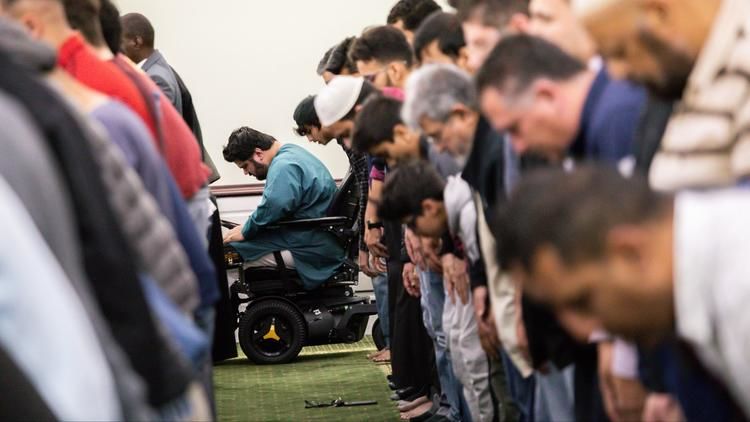
Chicago Tribute reports that in the past, “Muslims who have disabilities or chronic health issues often felt left out of Ramadan practices. But many who struggle with fasting or praying during the month have found alternative ways to participate with their communities that allow them to uphold the values Ramadan is meant to encourage, such as patience, service to others and community building.”
Joohi Tahir’s daughter has autism which makes it difficult for her to attend services at the local mosque. Seven years ago, Tahir started a Chicago-based organization called Muslims Understanding & Helping Special Education Needs (or MUHSEN) which works with mosques to better support families with disabled members. “A lot of Ramadan is spiritual practice, like coming to mosque at night, and hearing the Quran being recited,” says Ms. Tahir. “Families with disabilities don’t get to do that.”
Noor Pervez was diagnosed with fibromyalgia, a chronic illness that spread muscle pain throughout the body and often damages the nerves. In Pervez’s case, he realized as a teen that his body was not cut out for fasting. “I remember praying really hard to be able to do it,” he said, “but eventually kind of admitting, ‘God, this is really not working out for me.’” He started to find ways to practice without fasting such as donating more money to his mosque or spending more time volunteering at food kitchens.
At Masjid al-Rabia, where Mr. Pervez serves as accessibility director, the mosque’s co-founder, Mahdia Lynn, says she also finds ways to practice Ramadan despite health limitations. “I learned that the faith says that if you can pray, you should pray. If you can’t kneel while you’re praying then pray standing up. If you can’t stand up while you’re praying then sit down. If you have to lay down, then lay down. If you can’t do that, then just be where you are,” she explains with a reference to a hadith of the Prophet Muhammad. “It was really the Quran that helped me understand that this tradition is meant to meet people where they are.”



